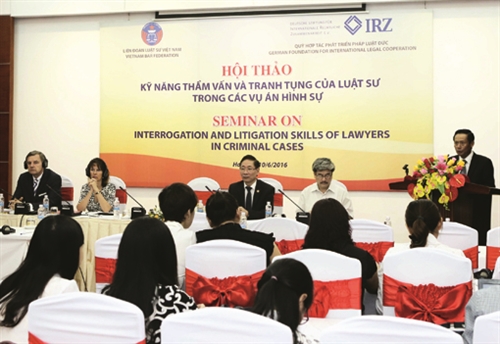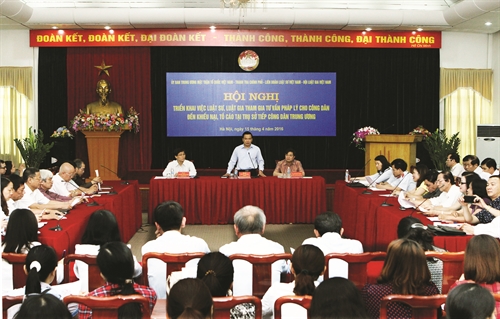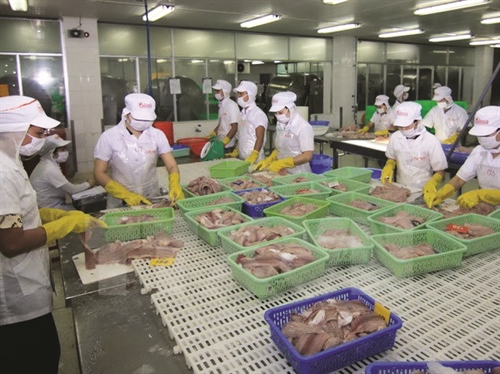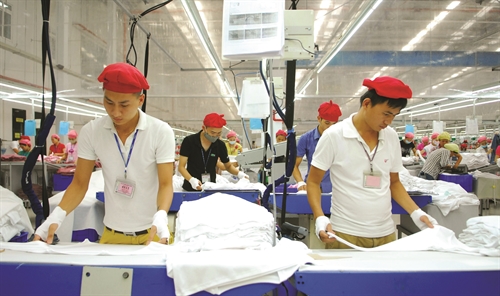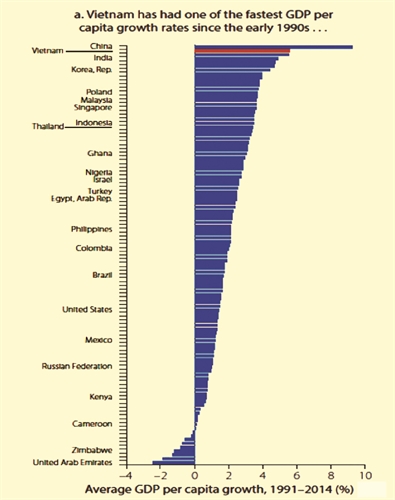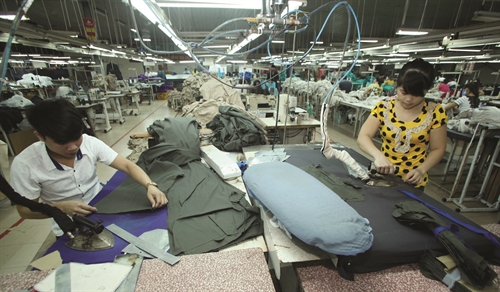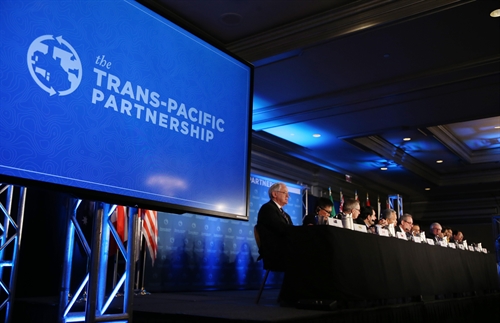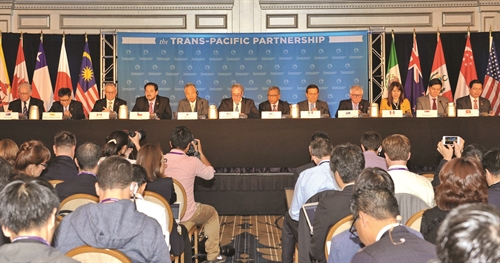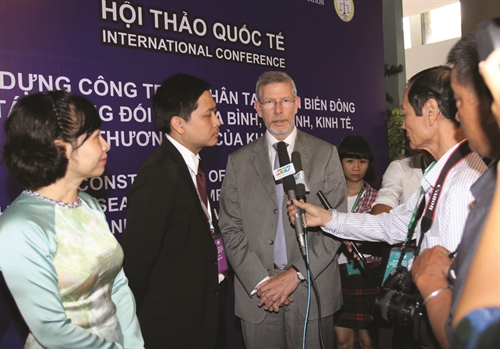>>More rights for the accused, defense counsels in criminal proceedings
Scott Ciment[1]
Policy Advisor for Rule of Law and Access to Justice
United Nations Development Program
In 2016, criminal justice in Vietnam will be governed by a slate of new laws, most of which are contained in the 2015 Criminal Procedure Code (CPC)[2] and 2015 Penal Code that go into effect on July 1, 2016. Preliminary drafting and debates began in 2014, and media reports revealed that healthy disagreements were voiced throughout the legislative drafting process between different factions of the Government and within the National Assembly itself. What emerged, however, was a bit of a surprise: the CPC of Vietnam contains far more rights afforded to criminal defendants and their counsels than many observers had thought politically possible.
Implementation and enforcement of these new and enhanced rights will remain a significant challenge for years to come. While some laws are “self-executing,” such as removing the death penalty as a sentencing option for certain offenses in the 2015 Penal Code, other criminal laws will require substantial financial and human resource investments by police and other investigative agencies, likely guided by decrees and circulars. This article does not address how the CPC will be implemented, nor does it cover the revised Penal Code. Instead, it reviews the plain language of the CPC to see how it promotes adversarial principles of criminal justice and rights guaranteed under the 2013 Constitution of Vietnam, including how the CPC aligns with certain international human rights instruments.
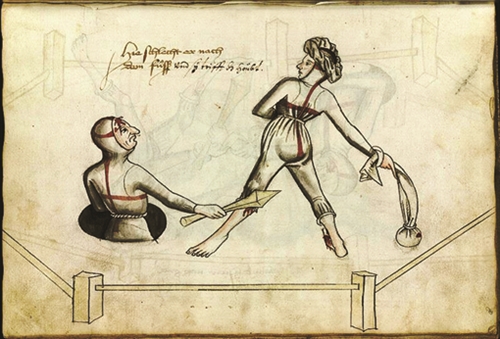 |
| A depiction of a 17th century trial by combat where it appears that attempts were made to provide "equality of arms" between the two adversaries |
The revision and debate over the CPC took place while several important international human rights activities were underway in Vietnam. The country was undergoing its second Universal Periodic Review (UPR) before the United Nations Human Rights Council, a relatively new procedure that allows all UN Member States to present recommendations to Vietnam for improving its human rights situation[3]. Vietnam was also engaged in several bilateral human rights dialogues with western countries, including Australia, the European Union (EU), the United States, Switzerland, and individual members of the EU. Much of the focus of these bilateral dialogues was on criminal due process in general, and on arbitrary detention in specific criminal cases. Throughout all this, the Government was operating under a new Constitution - adopted in 2013 - that guarantees “adversarial principles” in all trials[4].
The term “adversarial principles” is not a highly technical one; it is generally used to describe justice systems that allow for both parties to advocate before a judge or jury pursuant to a set of rules permitting separate arguments and the introduction of independent evidence by the defense. Though there are many characteristics that can be used to classify a justice system as adversarial, the most fundamental is perhaps the concept of enforced “equality of arms,” where rules permit both the prosecution and defense to advocate zealously for their respective positions pursuant to the same laws of procedure and evidence[5]. The CPC underscores and codifies this principle.
How the 2015 CPC Promotes Adversarial Principles of Criminal Justice in Vietnam
Many countries that profess to follow adversarial principles have robust adherence to stare decisis, the legal doctrine that requires judges to follow earlier decisions by higher courts when the facts and the law at issue in a pending case are generally similar[6]. Vietnam’s judicial system is generally characterized as being informed more by “civil law” principles of jurisprudence than by “common law” ones, which limits but does not remove the role of stare decisis in decision-making at the trial court level[7]. Without a healthy body of case-law created over time by adherence to stare decisis, adversarial principles will likely evolve slowly, with geographic disparities resulting from de novo review of the same rules by judges with different opinions and experiences. Nonetheless, the articles in the 2015 CPC are binding as a matter of law on the courts, prosecutors, and criminal investigating agencies when they go into effect July 1.
Persons facing criminal proceedings starting July 1 are classified into four groups, roughly aligned with the stage of the criminal litigation cycle, and their rights generally evolve and increase as the case matures. These categories include:
- Denunciated, or persons against whom a criminal complaint has been made but preceding arrest (Art. 57);
- Detainees, or persons who have been arrested in case of emergency, after being ‘caught in the act,’ or upon the execution of an outstanding arrest warrant, and who are now in custody (Arts. 58 and 59);
- Accused, or persons against whom formal criminal proceedings have been initiated (Art. 60), and;
- Defendants, or persons who are placed on trial as a result of not having criminal charges dismissed by the Prosecutor or by the Court during an earlier stage of the proceedings (Art. 61).
Many of the rights associated with the adversarial criminal justice process are provided to each category of arrested persons, and many of the rights to review charging documents and evidence increase accordingly as the case comes closer to an actual trial. So what are some of these new rights, and how are they related to the adversarial process?
To Remain Silent: One of the more substantial new rights in the CPC that brings Vietnam’s legal framework into better alignment with fundamental international fair trial standards is the right to remain silent during custodial police interrogations. The right to remain silent - or as contained in the CPC, “the right not to be forced to provide statement against themselves or to plead guilty” - is a foundational tenet of the International Covenant on Civil and Political Rights (ICCPR), which was ratified by Vietnam in 1982[8]. This right is made applicable to all classes of detained persons in the CPC, including detainees, the accused and defendants. In countries with a long history of enforcing the right to remain silent, it is accompanied by a complementary requirement that state agents, upon placing a person in custody, explain the right to remain silent and ensure that the arrestee understands this right. This accompanying right to be informed that silence is an option is fortunately also provided in the CPC in Article 60 (2)(b). Looking towards implementation, law enforcement agencies in Vietnam may decide to produce a standardized statement that all officers with authority to arrest people must read aloud after a person is taken into custody, similar to the Miranda warning that is generally read as a routine matter in the United States, and to recitations made by the police in EU countries.
The right to remain silent is also one of the requirements of the Convention Against Torture ratified by Vietnam in 2015. If a State forbids the use of torture or inhumane treatment for any purpose, but especially when done to get information from a person in its custody, then the right to remain silent must be equally respected. Vietnam’s inclusion of the right to remain silent aligns its legal framework with international requirements under the ICCPR and the Convention Against Torture.
The judiciary also has a major role in enforcing this right under national legislation. If a defendant makes a credible allegation that a statement the prosecution intends to use was extracted from him or her through torture, the response by the court is critical. The judiciary will need to decide what remedies are available to a criminal defendant who can demonstrate that their statement was extracted through torture. Money damages, or prosecution of an offending police officer, will likely not provide sufficient relief for someone against whom an illegal confession was obtained. A statement produced by torture should not be allowed as evidence, both because it is illegally produced, and due to it being unreliable. International research has shown that statements produced by torture are generally untrustworthy and lead to wrongful convictions[9]. The Convention Against Torture also requires participating States to adopt a legal framework to ensure that statements obtained through torture are excluded in trials against the accused[10].
To Review Evidence Maintained by the State: Another foundational principle of the adversarial process now contained in the CPC Article 60(2) (i) is the right of a criminal defendant to review or copy evidence related to their case. This right is made more meaningful by including the right to review not only the evidence that the prosecutors intend to use to prove a defendant’s guilt, but also exculpatory evidence, or evidence that points to the defendant’s innocence. This could be a statement of a witness that contradicts the statements of other witnesses, for example, or a photograph of the defendant taken soon after his or her arrest that shows them with injuries inconsistent with the crime alleged.
A set of regulations and procedures are needed to ensure that this right is respected in practice, since most law enforcement agencies and prosecutors are hesitant to share information with a defendant or his or her counsel. As with the right to remain silent, judicial review and enforcement of this right is critical to it being applied at the grassroots level. Judges in Vietnam may soon be confronted with clear established examples of police or prosecutors deliberately withholding information about which a criminal defendant and his or her attorney were entitled to know. An effective remedy for violating this law would be most effective if - at a minimum - it can form the basis for an appeal of a conviction in addition to any monetary fines that could be levied against a state agent found in violation of this CPC provision.
To Present Evidence and Opinions: An adversarial system of criminal justice is dependent on the right of both the prosecution and the defense having equal ability to present and comment on evidence under consideration. This right, as set forth in the CPC Article 60(2)(e) and (g), should allow defendants and their lawyers to use the evidence they become aware of under the right to review, but it is not the only way a defendant can enjoy this right. Under the right to present evidence, there must be a recognition of the parallel entitlement to conduct an independent investigation so that a lawyer or a defendant can discover facts that would otherwise not be presented to a judge by the prosecutor. In countries that adhere to an adversarial system, defense lawyers commonly visit a crime scene to assess whether witnesses could see what they claim to have observed, or talk to witnesses that may have important information about the events surrounding the criminal case. Judges in Vietnam should welcome additional evidence so that their findings can be fully informed. However, the CPC does not address how evidence can be authenticated, or shown to be reliable through the proper laying of an evidentiary foundation; this type of legal process will hopefully soon be addressed in Vietnam by the passage of an Evidence Code that sets forth specific procedures for introducing all types of legal evidence, including facts sought by both sides in criminal and civil disputes.
The rights discussed above are not the full panoply of rights that criminal defendants will be entitled to as a matter of law from July 1, 2016. The Ministry of Public Security and the Supreme People’s Court will need to carefully establish and implement rules and procedures to ensure that these rights are fully enforced and respected, even if it means that evidence which supports a prosecution must be excluded or re-examined if obtained in violation of these rights. At its most basic level, an adversarial system of justice as set forth in the 2013 Constitution means that the outcome of a criminal trial is never certain, and that the all defendants are presumed to be innocent until both the prosecution and the defense have had a full opportunity to present evidence and make legal arguments to the judge and assessors. The 2015 CPC has charted a path that leads directly towards a more adversarial and rights-based system of criminal justice in Vietnam; hopefully, any concerns about the uncertainty of the outcome of trials do not interrupt this progress.-
“The adversarial principle shall be guaranteed in trials.”
Article 26, 2015 Criminal Procedure Code: “Guarantee of adversarial procedure in adjudication”
“In the process of initiating, investigating, prosecuting and adjudicating criminal cases, investigators, procurators, other persons having the jurisdiction to conduct criminal procedure, the persons being criminally charged, defenders and other persons participating in criminal procedure are all equal in presenting evidence, assessing evidence, making requests to clarify the objective truth of the cases.”
